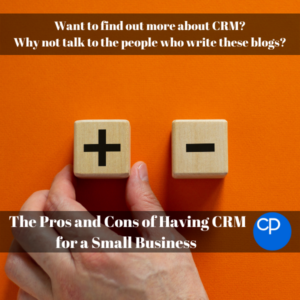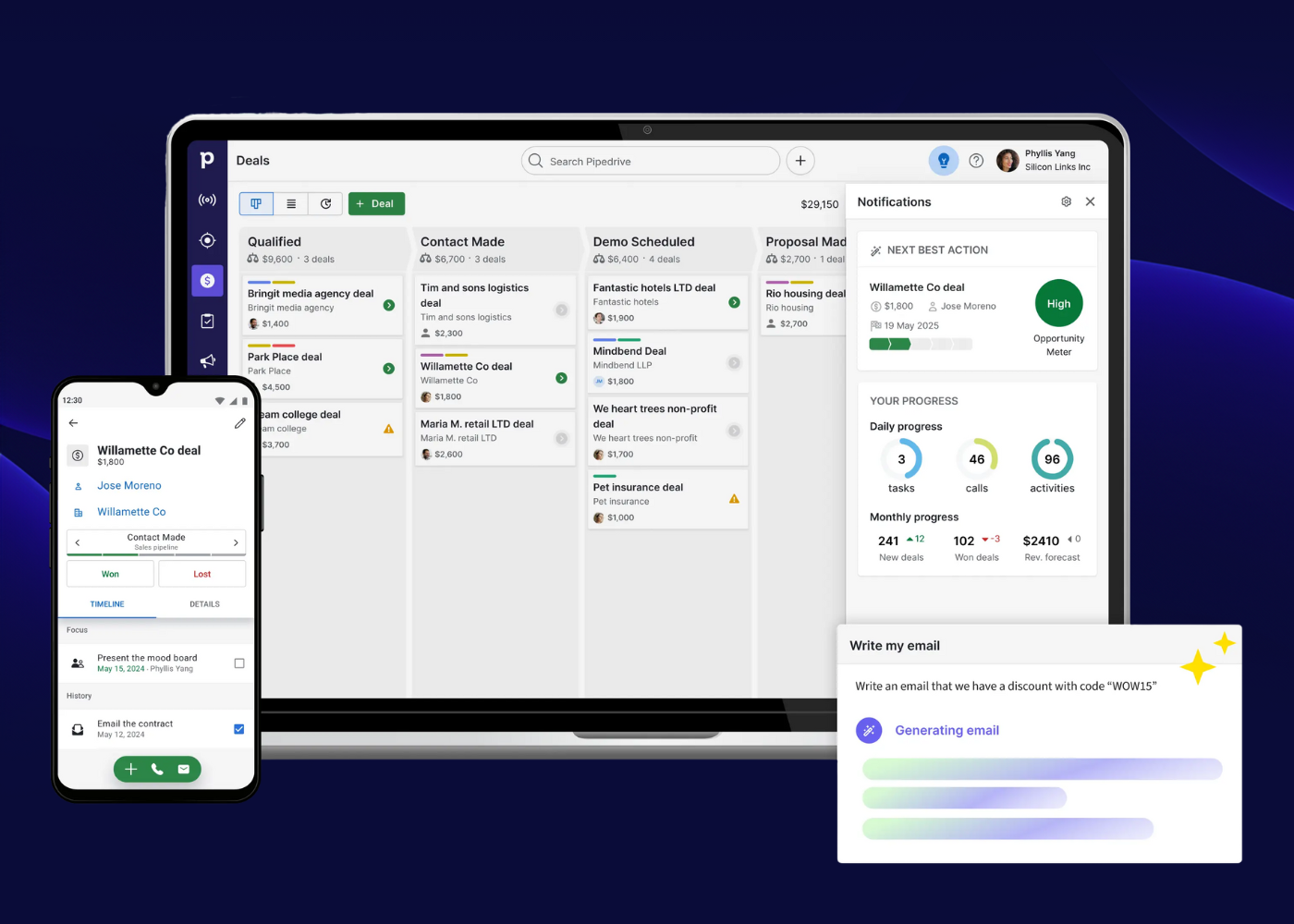 You may be considering taking on a CRM but first, it is worth knowing the advantages as well as the disadvantages. In this article, I will help weigh up the pros and cons of having a CRM.
You may be considering taking on a CRM but first, it is worth knowing the advantages as well as the disadvantages. In this article, I will help weigh up the pros and cons of having a CRM.
Running a business can be both tough and rewarding, and all business owners want the best for their company. At some point in the life of your business, you may have seen CRM pop up. CRM is a tool that has been built to help you and your team’s workflow and sales pipeline.
Pros
Automate Workflow
Maintaining your workflow is something that all businesses will have to manage. You may keep all information in a notebook or Excel spreadsheet and if that works for you, brilliant! The real question is how these processes can help your daily work life?
Using a CRM system means that you can keep all your customer data and interactions in one place, removing the constant flicking through pages and squinting at your spreadsheet to find the answers that you need.
Incorporating a CRM into your business also allows you to keep up to date on appointments and tasks. When making a call through a CRM system, it can ask you to schedule a follow-up interaction, just like it read your mind! Having something like this in place removes the risk of forgetting to follow up with that potential client or keeping you on your toes ready for your meeting later that day.
Having the ability to no longer worry about your schedule is a blissful feeling, so is this what you’re looking for?
Increase Revenue
Questioning how a CRM could increase revenue and generate a return on your investment is common, so, let’s explain further.
Following up with previously lost prospects could be all you need to do to generate some new business. They may have had an unpleasant experience with their current provider or maybe they’ve outgrown their current product?
What if there was a way of running a search on any lost prospects that had been spoken to in the last year? Why not give them a courtesy call to see how they are getting on, as yes at the time they may not have been ready for your product, but they certainly could be now.
On top of allowing you to run searches within the database, you can also run marketing campaigns from your CRM. Running campaigns direct removes the need to do this externally, allowing overall spending to be reduced which will then further increase profits for the business. If a system can help increase the quality of work at a lower spend than what you pay now, then let us take this with open arms.
Increase Time Quality
Wasting time, if it is a couple of minutes or a couple of hours a day, it can certainly add up throughout the week whether you are in out or of work. To get more out of your day, let’s make sure the time spent is used efficiently and effectively.
Yes, I can rely on myself to do this but there is nothing wrong with a bit of help. When introducing a CRM, you can automate follow up activities after a call or meeting, this effectively removes the risk of forgetting to do so or rummaging around your desk after jotting it down on a note.
Ok yes, a CRM can automate a follow-up task but how is it supposed to remind me? As well as automating the task this will also send a prompt on the day of said task as well as the time of that task if added.
The brilliant thing is that as well as creating tasks for yourself you can create these for anyone else in your business. This allows the removal of menial tasks which then saves the company time, making the remaining time spent mean more to you.
Cons
Cost
When money is involved, we want to make sure that we are getting value for what we are spending. With a CRM it’s no different, so when making the go ahead with the decision of setting up a CRM remember there may be costs involved within the setup process.
The main costs will be a monthly or annual charge per user, support and an overall set-up fee to create the system. Within the CRM catalogue there are alternatives that offer a free set-up and only charge the per-user fee which sounds brilliant, but can it do everything that is needed?
Depending on the CRM supplier they may offer a free version of their software and if you want any extras, they will charge you a premium. So, it isn’t cheap. Other companies may do this in the form of a tier system, allowing the user to increase the use of their CRM the higher the package that is chosen. When doing research into a CRM it is worth making sure the supplier can fully explain what the charges cover and more importantly what they do not.
Timescale
Creating a CRM with the requirements you are after can take time to build and install, this can vary on what the system is needed to do. When adding something new to your business the overall need is to make sure it does what it says on the tin and when it arrives, I know how to use it.
So, when first discussing setting up a CRM you should make sure it is worth clarifying how long it will take to build.
Specific companies can take a couple of days to create the system which at first may seem great, although will that system do everything that is needed? Certain companies are happy to take payment for the order but not start for six-plus weeks, meaning you’re currently out of pocket and over time getting impatient.
When doing your research, it is worth finding out the time scale of implementation and what that provides, you want to be goldilocks, finding that CRM that is just right for your needs.
Training
So, the conversation has been had on what you want your CRM to do, the build is complete and it’s finally here! Like a kid on Christmas, you are ready to crack open and use your flashy new system then you realise, how do I use this?
Training is as important as the system itself as if you do not know how to use it then the money spent for the users and system has gone to waste.
Education is not for everyone but when you are paying for something to help the business, you want to make the most of it. Companies may recommend no training and offer hint videos or a guide on how to go ahead but sometimes these do not help answer the questions at hand.
Various companies may offer support with one-to-one or group training, however, this may come in at an added cost. When outlining the costs of your CRM always ask about training as nobody likes to be stung with an extra charge.
So, I have outlined the pros and cons of adding a CRM into your business, it may be a daunting experience so it is worth going to a company that can help. Research is always important so when looking into different companies make sure they can outline the overall costs as well as how long it will take to get going.
If you are looking to add a CRM to your business and unsure where to start, then please get in touch, let us help get you on the right track and find the right CRM.




